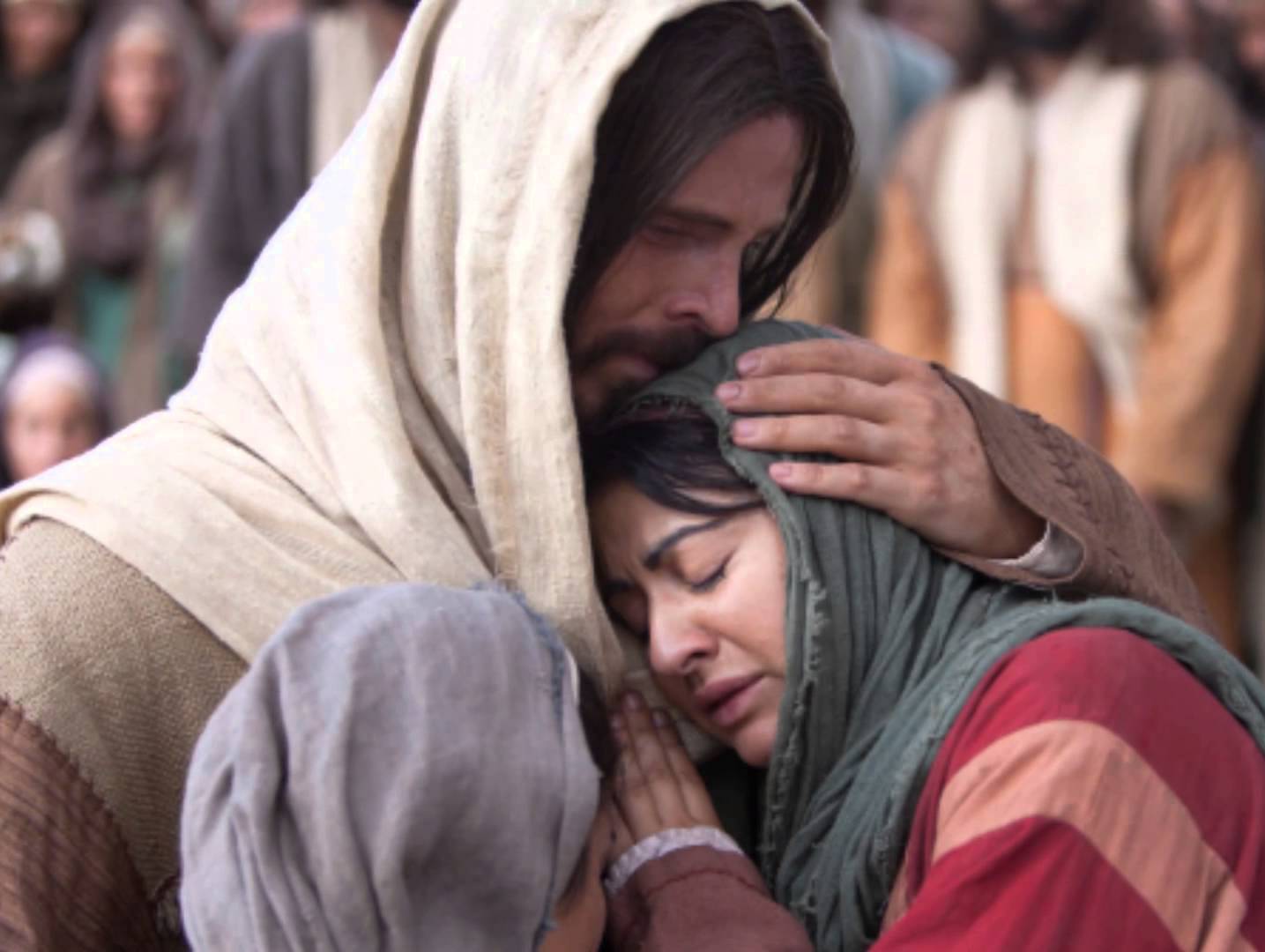 When Jesus went to be with his friends Martha and Mary on the occasion of the death of their brother Lazarus, and before he raised him from the dead, he asked Martha a significant question. Jesus said, “I am the resurrection and the life. Those who believe in me, even though they die, will live, and everyone who lives and believes in me will never die. Do you believe this?” (John 11:25-26).
When Jesus went to be with his friends Martha and Mary on the occasion of the death of their brother Lazarus, and before he raised him from the dead, he asked Martha a significant question. Jesus said, “I am the resurrection and the life. Those who believe in me, even though they die, will live, and everyone who lives and believes in me will never die. Do you believe this?” (John 11:25-26).
This is the question of faith. It’s a question each person who encountered Jesus had to answer for themselves. It is the question the haemorrhaging woman answered when, in an act of faith, she touched Jesus’ cloak. It was answered when on the road Nathanael said to Jesus, “You are the Son of God! You are the King of Israel!” (John 1:49), and when Thomas, after touching Christ’s wounds, professed, “My Lord and my God!” (John 20:28). And so, without seeming hesitation, Martha responds to Jesus, “Yes, Lord, I believe that you are the Messiah, the Son of God, the one coming into the world” (John 11:27).
I always tell my students, some who’ve felt the faith forced upon them by their parents, that no one can be forced to believe. Jesus did not force a belief in God upon those he encountered. Rather, people’s genuine encounter with Jesus inspired within them an organic faith, rising up from grace and openness. Faith is something that one must come to in their own hearts. And it often comes from the witness of others, not by memorising lists of rules and morality codes.
I teach an Introduction to Christianity class for international high school students and on a few occasions, as I’m telling the stories of God’s hand throughout salvation history, keeping faithful despite humanity’s sin and liberating the chosen people from slavery and suffering, I find myself tearing up. As I emphasise God’s faithfulness to God’s covenants and the ways God brings goodness and life out of bad, I notice my heart move with gratitude and awe. I believe this. I believe in God’s amazing goodness and abundant love.
As we celebrated my daughter Eva’s baptism a week ago, my wife and I, along with Eva’s godmother, were asked to affirm our faith. The priest asked us a series of questions that began with “Do you believe…”. I thought back to those teary moments in class, to the professions of faith in the Gospel, to those in my life who’ve witnessed their faith to me, and placed myself among that cloud of witnesses. I prayed that I could continue that call to be a witness of faith to my new daughter. “This is our faith. We are proud to profess it,” the priest concludes.
Do you believe this? This is a question Jesus continues to ask us. Our belief is never perfect. We need to continue to renew our belief in God’s goodness. This is why each Sunday most Christians profess their faith publicly in the form of a creed, not because they lost their faith in the past week but because there is profit in reflectively answering Jesus’ question over and over again. Ignatius understood that repetition often bore fruit. He knew that the spiritual life required daily recommitment, and most importantly, that our answer to Christ’s question required continuous encounters with Jesus in prayer and the sacraments. Do we believe? Do we pray and attend church out of a deep conviction of belief or because of something else?
Our beliefs can be the most real things in our lives because they have the power to transform our lives. Jesus told Martha that he was the resurrection and the life and asked her if she believed this. And then he gave her the space for a free response. That response had the grace to change her life, bringing her brother back to her. The response of faith had the power to stop the woman’s years of bleeding or Nathanael’s scepticism of Jesus or Thomas’ doubt. Jesus’ question and our response has the power to deepen our faith, lead us to more questions, and to a greater trust in a God who always remains faithful and abundant in love.
Listen to an audio version of this post…









Hi Andy, Congratulations on Eva’s baptism. I am sure you are realising how life-changing a birth is for all around, especially parents.
I was struck by your title in this post, “Do you believe this?” because I’ve been struggling, not in my head, but in my heart with incredulity. I feel the weight of a huge deposit of Church doctrine as being incredible. Over the years the nourishment from my religious roots has changed with age, place, circumstances (for example having babies). Young people like yourself catch up and overtake me in technology, physical agility, intellectual swiftness and, yes, incredulity. Few take seriously the deposit of faith and see the virgin birth, the resurrection of the body, the Ascension, the Assumption and the gospel miracles as, at best, metaphor or allegory or myth. Most lead lives in which these teachings have no bearing: they were compass points in my youth.
I am with this majority now. I would say, “No, I don’t believe.”
I do understand the grace of those moments you describe when tears flow and your heart is moved “with gratitude and awe.” That still happens for me. Without believing in doctrines as facts I keep going in prayer – as Ignatius suggests. I notice that the articles of Faith which remain active are fewer and fewer, as if I am sea-water in the sun, which becomes richer and richer in salt as I dry out. In this process I am aware that the preciousness of what is left after drying and filtering and sifting is the core of the gospels, mainly in the beatitudes and then I can see that among the many, many non-believers around me are those with hearts full of compassion, eager listeners, consolers, peacemakers and people so full of generosity that I aspire to give a bit more and horde less, maybe even, with God’s help, to renounce all I have. I am surrounded by saints and wonder what sense it makes to them to hear me say the Credo.
From this process I have two reflections:
1. That Evangelisation is not about transmitting our Faith as doctrine but rather in Recognising Christ in the other, in each human being.
2. That the desperation which pours out from us when we are bereaved, wounded, tortured, imprisoned, flattened and terrified which errupts as a cry for help, like the blind man by the roadside as Jesus passed by, that is the real witness to true Faith as so many Gospel stories testify. How much doctrine begins with our own inner woundedness and need for God’s help?